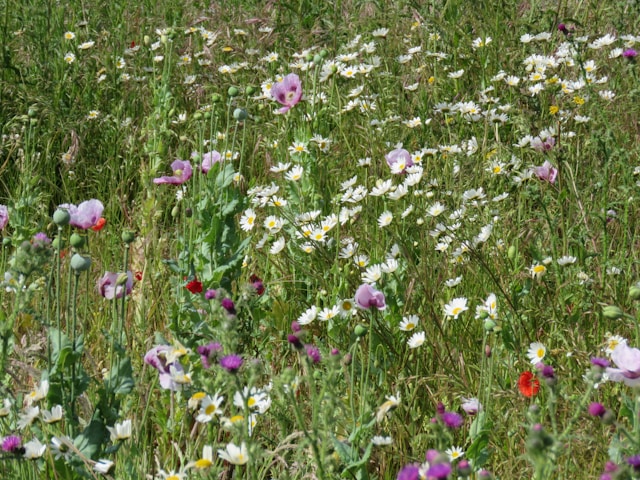Beehives Aren’t the Answer in Cities to Boost Bees and Biodiversity
Beekeeping is an increasingly popular way for city-based businesses to demonstrate their commitment to promoting biodiversity, but as Alison Benjamin...
Read Full Article
Traditionally an awareness month targeted at the residential market, facilities managers are taking No Mow May as an opportunity to promote biodiversity across their estates.
No Mow May is a conservation endeavour by the charity Plantlife, in reaction to the loss of 97 per cent of flower-rich meadows since 1970. The charity aims to encourage biodiversity in the estimated 20 million back gardens in the UK, by boosting the food sources for pollinators like bees and butterflies. The initative encourages people to support local wildlife by not mowing their lawns for one whole month, encouraging pollinators to visit and enhancing their chances of survival.
However, the benefits of allowing grassy areas to flourish are also important in the commercial real estate sector, providing an opportunity to boost biodiversity credentials. FM provider OCS is encouraging their customers to get involved in No Mow May, including Cambridgeshire County Council, M&G, GKN and more with grounds covering around 3190 sqm.
Since the 1930s, approximately 97 per cent of British flower-rich meadows have been lost, affecting a vital source of nectar for bees and other insects. 35 UK bee species are currently under threat of extinction, and it’s no coincidence that UN World Bee Day occurs on 20 May every year.
OCS client Cambridgeshire County Council will support No Mow May by pausing the mowing of road verges and letting wildflowers and plants grow freely. There are nearly 313,500 miles of rural road verge in the UK, representing a significant opportunity to support the recovery of nature.
Richard Panter, Facilities Manager at Cambridgeshire County Council said: “Cambridgeshire County Council is delighted to participate in No Mow May, a remarkable initiative that champions British wildlife and fosters biodiversity. Throughout this month, we look forward to welcoming a variety of wildflowers and pollinators to our grounds. We extend our gratitude to our partners at OCS, who will be supporting us with this commendable effort.”
Picture: a close-up photograph of a wildflower meadow. Image Credit: Unsplash
Article written by Ella Tansley | Published 15 May 2024
Beekeeping is an increasingly popular way for city-based businesses to demonstrate their commitment to promoting biodiversity, but as Alison Benjamin...
Read Full ArticleAs urban planning development looks to prioritise sustainability moving forwards, commercial properties could also benefit from becoming literally greener. In the...
Read Full ArticleMandatory Biodiversity Net Gain rules, where developers must avoid loss of habitat on land they plan to build on, will be delayed until January 2024. Originally set to...
Read Full ArticleFirst announced in January 2021 by His Royal Highness Mohammed bin Salman, Crown Prince of Saudi Arabia and Chair of the NEOM Company Board of Directors, THE LINE is...
Read Full Article